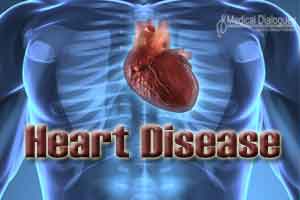- Home
- Editorial
- News
- Practice Guidelines
- Anesthesiology Guidelines
- Cancer Guidelines
- Cardiac Sciences Guidelines
- Critical Care Guidelines
- Dentistry Guidelines
- Dermatology Guidelines
- Diabetes and Endo Guidelines
- Diagnostics Guidelines
- ENT Guidelines
- Featured Practice Guidelines
- Gastroenterology Guidelines
- Geriatrics Guidelines
- Medicine Guidelines
- Nephrology Guidelines
- Neurosciences Guidelines
- Obs and Gynae Guidelines
- Ophthalmology Guidelines
- Orthopaedics Guidelines
- Paediatrics Guidelines
- Psychiatry Guidelines
- Pulmonology Guidelines
- Radiology Guidelines
- Surgery Guidelines
- Urology Guidelines
Fenofibrate may reduce heart disease risk in diabetic patients: JAMA

Washington : A study finds that a drug may reduce the risk of heart attacks, stroke in patients with type 2 diabetes, who have high levels of fat and low levels of "good" cholesterol, despite being treated with statins.
The study, funded by the National Heart, Lung, and Blood Institute (NHLBI), appeared in the JAMA Cardiology.
Researchers wanted to know if the drug Fenofibrate-primarily used to help reduce elevated levels of triglycerides, or fat, in the blood when combined with statin treatment, could also reduce the risk of heart disease in people with type 2 diabetes.
People with type 2 diabetes are at high risk of cardiovascular-related events, such as heart attacks, stroke and even death, often because their levels of triglycerides are so high and their high-density lipoprotein (HDL) cholesterol levels are low.
They followed 4,640 participants from the NHLBI-funded Action to Control Cardiovascular Risk in Diabetes (ACCORD) Lipid Study for five years after the conclusion of the trial in 2009.
The findings suggest that fenofibrate therapy may be beneficial in the way the researchers hoped: by reducing cardiovascular events in patients with type 2 diabetes who take statins but still have especially high triglycerides levels and low HDL cholesterol levels.
However, a randomized study is needed to confirm these findings, according to the authors.

Disclaimer: This site is primarily intended for healthcare professionals. Any content/information on this website does not replace the advice of medical and/or health professionals and should not be construed as medical/diagnostic advice/endorsement or prescription. Use of this site is subject to our terms of use, privacy policy, advertisement policy. © 2020 Minerva Medical Treatment Pvt Ltd